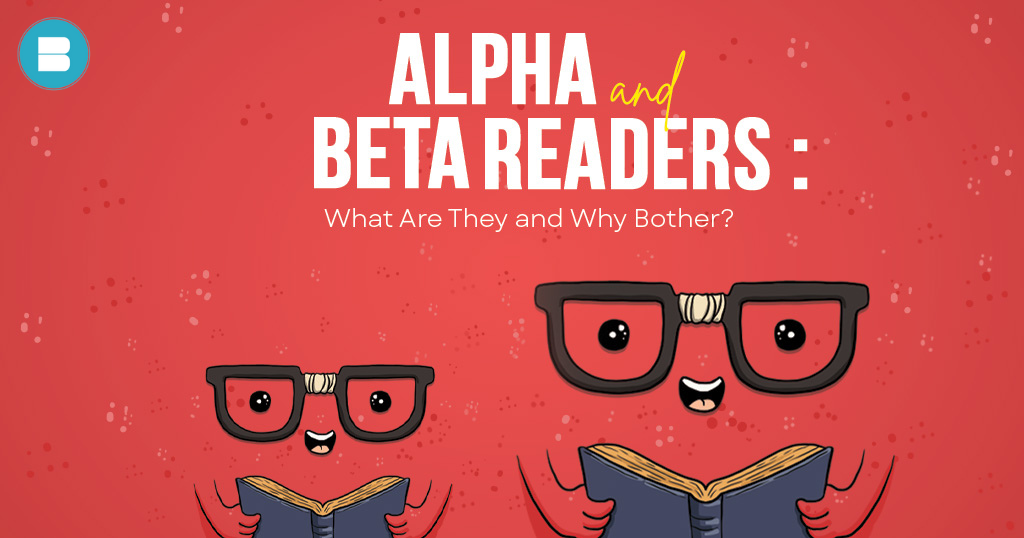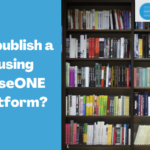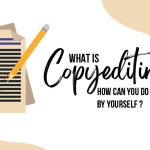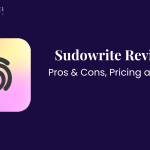The terms “alpha readers” and “beta readers” may sound like weird code words in the world of writing and literature, but they are extremely important in the creation of a polished and successful piece of work. You’re probably familiar with the creative process as a writer—those long hours spent pouring your heart and soul into a book. But what happens once you’ve typed “The End”? This is where beta and alpha readers come in.
Let us dissect the functions of these literary partners and discover why they are priceless.
Understanding Alpha and Beta Readers:
Alpha readers and beta readers are individuals who play a crucial role in the pre-publishing stages of a manuscript. They are not professional editors but rather passionate enthusiasts who bring fresh perspectives to your work. Here’s a breakdown of their roles:
Alpha Readers:
Alpha readers are the first to discover your literary environment. These people are frequently friends, family members, or intimate acquaintances who see your book in its first, uncooked version. Their responses are like watching the birth of a narrative, since they capture their instant reactions and unedited perceptions. They are well-equipped to bring out important flaws that may have evaded your zeal to produce since they approach the work with new eyes.
Consider the following scenario: An alpha reader finds a major discrepancy in your protagonist’s goals. They may point out that the character’s behaviours are inconsistent with their established attributes, giving you the opportunity to address this key issue early on.Beta Readers:
Beta readers are brought in after you’ve absorbed the feedback from your alpha readers and modified your book properly. They represent a varied cross-section of your desired audience, guaranteeing that your narrative will eventually be devoured by people who will read it. These readers give systematic, thorough feedback rather than anecdotal comments.
Beta readers examine your book critically, highlighting plot gaps, character arcs that need to be developed further, instances of artificial language, pacing flaws that impede engagement, and overall narrative coherence. Their suggestions serve as the foundation for your final edits, ensuring that your story is solid on all fronts.
A beta reader, for example, may point out that the middle portion of your story is slow owing to excessive exposition. With this knowledge, you may deliberately redistribute material or include a subplot to keep the action moving.
In essence, alpha readers are your manuscript’s early defenders, while beta readers are the discriminating guides who navigate its honed landscape. Both are critical steps in the process of transforming your rough draft into a polished, effective piece of writing. Their collective ideas enable you to create a tale that not only fulfils your creative vision but also captivates and connects with a larger audience.
You may also read: List of Top 10 William Faulkner Books of All Time
The Power of Constructive Critique:
Now that we’ve clarified the roles of alpha and beta readers, let’s address the question: Why bother? The answer lies in the transformative nature of constructive critique. Here’s why their input is worth its weight in gold:
- Fresh Eyes, New Insights: As authors, we often become so immersed in our work that we might overlook its flaws. Alpha and beta readers bring a fresh perspective to our manuscripts, helping us uncover gaps, inconsistencies, and areas needing improvement that our familiarity blinds us to. For example, a writer might unintentionally overlook a character’s sudden change in behaviour, but a perceptive reader can highlight this discrepancy.
- Plotting the Right Course: Early feedback from alpha readers is invaluable in steering your story in the right direction. Their insights can prevent you from veering off course or investing excessive time in a narrative that’s fundamentally flawed. For instance, if an alpha reader points out that a subplot is distracting from the main plot’s impact, you can make necessary adjustments before advancing further.
- Real-World Testing: Beta readers offer a real-world litmus test for your manuscript’s effectiveness. Their reactions mirror those of future readers, helping you gauge whether your story resonates emotionally as intended. If beta readers express disconnection from a pivotal moment meant to evoke empathy, you can refine it to ensure the desired emotional response.
- Target Audience Alignment: Beta readers from your target audience provide critical insights into whether your story aligns with their preferences. Their feedback ensures your work appeals to the very readers you aim to capture. For instance, if your intended readers are young adults, beta readers from this demographic can pinpoint aspects that resonate or fall flat within their age group.
- An Honesty Echo Chamber: While friends and family might hesitate to offer honest criticism, alpha and beta readers provide candid feedback. This constructive critique is vital for my growth as a writer. For example, if a character’s motivations aren’t clear, unbiased readers can point out the confusion, prompting you to enhance character development.
- Craftsmanship Enhancement: Receiving feedback from multiple beta readers is akin to honing your writing skills with a fine-tooth comb. By identifying recurring issues, like excessive adverbs or passive voice, you can refine your writing style. This refinement elevates your craftsmanship, aligning it with professional standards.
- Early Refinement: Addressing significant issues flagged by alpha and beta readers during the early stages accelerates your revision process. Imagine an alpha reader noticing a timeline inconsistency—correcting this early prevents a cascade of necessary revisions in subsequent chapters.
- Confidence Boost: Positive feedback from beta readers isn’t just heartening; it bolsters your confidence in approaching publishers or self-publishing. When beta readers express enthusiasm for your plot twists or character dynamics, you’re validated in your storytelling choices.
Engaging alpha and beta readers into your writing process is analogous to enlisting colleagues who provide unique perspectives to your work. Their suggestions transform your novel from a personal endeavour into a compelling piece of writing that communicates to a larger audience.
Read: Learn what is Conceptual Writing? Definition, Types & Elements of Writing.
The essential role of alpha and beta readers is critical in the rich fabric of writing. They contribute objectivity, insight, and excitement to your writing, assisting you in creating a book that is both compelling and readable. Their viewpoints strengthen your storytelling abilities, allowing you to build a story that connects emotionally with your audience.
So, the next time you’re debating whether or not to use alpha and beta readers, remember that their input is the compass that points your work in the right direction.
You may also like: Tone Examples in Literature: 15 Must-Know Types With Examples
FAQs about Alpha and Beta Readers
Beta readers play a pivotal role in the writing process by offering insightful feedback on various aspects of a manuscript. They analyse elements such as plot development, character depth, pacing, dialogue authenticity, and overall narrative cohesion. Their critical assessment helps authors identify areas for improvement, ensuring that the manuscript becomes a polished and engaging piece of work that resonates with its intended audience.
In the majority of cases, beta readers are volunteers who generously dedicate their time and expertise to assist authors. Rather than receiving monetary compensation, beta readers are motivated by their love for reading and their desire to contribute to an author’s success. Their voluntary involvement underscores the collaborative and supportive nature of the writing community.
Alpha and beta reading are two levels of manuscript evaluation. Alpha readers are the first to assess a new draft, offering their initial thoughts and feedback. In contrast, beta readers work with a more polished version of the manuscript. They provide organised insights on narrative complexities, character development, dialogue authenticity, pacing difficulties, and other smaller elements that contribute to the overall refining of the text.
Alpha readers, like beta readers, are usually unpaid individuals who provide their thoughts throughout the early phases of a manuscript’s development. They give preliminary input to authors, assisting them in identifying possible strengths and problems. Their voluntary participation exemplifies the collaborative spirit of the writing process, underlining the value of varied viewpoints.
Yes, renowned authors like Stephen King and J.K. Rowling use beta readers as an essential part of their writing process. These acclaimed writers recognise the value of external feedback in refining their work before publication. The practise highlights that no matter the level of expertise, every author benefits from the insights and perspectives of others.
Payment for beta readers varies widely based on the arrangement between authors and readers. Some authors offer a modest stipend as a token of appreciation for their time and effort. Others provide copies of the final book, allowing beta readers to experience the finished product they contributed to. Acknowledgment in the published work is another form of non-monetary compensation.
Formal qualifications are not prerequisites for becoming a beta reader. What matters most is a genuine passion for reading and a discerning eye for detail. A beta reader should possess the ability to analyse narrative structure, character motivations, plot coherence, and other storytelling elements. Constructive feedback and effective communication skills are key attributes.
Beta readers must possess strong analytical skills to dissect a manuscript and identify areas for improvement. Understanding narrative structure, character development, and pacing is crucial to providing insightful feedback. Articulating impressions clearly and constructively is essential for authors to interpret and implement the suggested changes effectively. Additionally, an open-minded approach and a dedication to helping authors achieve their best work are invaluable qualities for a skilled beta reader.
















